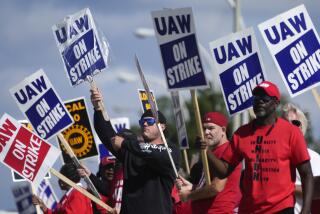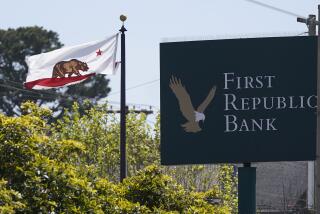The Bailout Bubble
Itâs hard to avoid the eerie feeling that the biggest political and economic news of the year ahead will be the failure--and toppling economic dominoes--of some attempted giant financial bailout.
South Korea, maybe. Or a triple whammy from Indonesia, Thailand and South Korea. Of course, it could be Japan, which is hurting--and too big to be bailed out by anything but its own resources and fortune.
Possibly the International Monetary Fund, the global financial bailout mechanism itself, could go belly up if enough Asian nations fail and Congress shuts the U.S. checkbook.
But the pivot may be whether the ultimate problem comes in the biggest bailed-out economy of all: the United States of Lockheed and Chrysler, overnight loans from the friendly Federal Reserve, portable peso oxygen tents, commercial bank transfusion kits, a capital city with more influence-peddlers than Seoul and shady Asian political donors filling the Lincoln bedroom.
Pejorative as that may sound, if thereâs a giant global economic bubble out there, the United States has slicked up at least half the glistening soap film. The first bailouts--Chrysler and Lockheed back in the 1970s--were relative peanuts.
The big bubble pipe came out in the 1980s. Part of the action came from tax cuts, deregulation and electronic program trading that helped turn the global financial markets into a 24-hour roulette wheel and spectronic Monte Carlo. But a large part also came from what can be called âlobster-salad socialismâ--the commitment of the major financial nations to bailing out stock markets, banks, foreign central banks and even entire nations that have made unwise investments.
The devices involved are too many and too complicated for more than a one-paragraph tour: IMF bailouts, World Bank bridge loans, Brady bonds, periodic floods of liquidity from the U.S. Federal Reserve, the New Arrangements on Kevin Phillips, publisher of American Political Report, is author of âThe Politics of Rich and Poor.â His newest book is âArrogant Capital: Washington, Wall Street and the Frustrations of American Politicsâ
Borrowing (NAB) and Exchange Stabilization Fund. Small wonder that after nearly two decades of this economic bungee-jumping, many overseas banks, stock markets and Asian cartels started to feel invincible.
And their colleagues in the United States did, too. Multinational corporations and Texas and Illinois banks got bailed out in the 1970s and early 1980s. By the late 1980s, federal bailout benefits had spread--at an eventual cost of hundreds of billions of dollars--to run-amok savings and loans and commercial banks. The insistence from Washington, of course, was that this was necessary to save Mom-and-Pop depositors.
Too often they were $5-million and $30-million Moms and Pops, though, with fancy addresses in Nassau or the Cayman Islands. Until late in the game, the U.S. federal deposit insurance honchos paid off big depositors--in taxpayer dollars, mind--with no attention to the nominal $100,000 limit. Without this support, the verdict of the marketplace would have been Hooveresque. One expert pointed out that the share of U.S. bank deposits held by financial institutions rescued by post-1986 federal insurance payouts exceeded the percentage held by banks that actually failed between 1928 and 1933, the Depression nadir!
Worse still, by 1992 and 1993, when all the banks were rescued and their profits and stocks began to soar again, Washington paid no attention to suggestions that excess profits taxes be imposed to recoup some of the previous federal (read: taxpayer) assistance.
Bailouts for U.S. investors took other forms as well. After the stock market crashed in 1987, the Federal Reserve pumped out money--liquidity, in red-suspender parlance--to get the indexes back up. Some traders contend that the Fed also bought futures contracts. Then in late 1994, when the Mexican peso crashed, the Clinton administration arranged a multibillion-dollar bailout to save investors in unsafe, high-interest Mexican bonds.
One of the most encouraging Washington developments of the last month, though, is the number of cynical conservatives, liberals and middle-of-the-roaders who are starting to describe this as just what it is: state capitalism, financial mercantilism, socialism or maybe collectivism. Take your choice.
But most of all, forget the old definitions. Meaningful socialism no longer involves collective ownership of factories. Thatâs smokestack-era stuff. The new financial socialism--considerably more popular in Palm Beach than San Pedro--now collectivizes the perils of insolvency, not the means of production.
If factory socialism 60 years ago worked to redistribute money downward, financial collectivism reduces speculative investment risk and therefore redistributes wealth and income upward--what weâve seen in the last 15 years.
Which brings us to the potential politics. The first question, for which there is no clear precedent in financial history, is: How long can market forces be kept at bay as bailout is piled on bailout? Itâs certainly possible that 1998 will turn out to be the year the bubble pops. If so, itâs a good bet that popping Washington party-system and income-distribution bubbles wonât be far behind.
The ordinary citizenry, in both the United States and Japan, is starting to figure out the abusive political economics involved. One well known presidential contender, for example, recently complained, âThe working and middle classes are endlessly conscripted, dunned and sacrificed--to rescue the investing classes.â No, not Jesse Jackson or Ralph Nader. Conservative Patrick J. Buchanan.
Up on Capitol Hill, a senator complained that, for Wall Street, bailouts have been âa heads I win, tails the taxpayer losesâ scenario. Sen. Edward M. Kennedy? No, Republican Sen. Lauch Faircloth of North Carolina.
Three years ago, the American public was lopsidedly opposed to the peso bailout, and the newest data suggest theyâre no happier to have the United States helping to fund the IMF Asian bailouts. The Japanese electorate, in turn, has become extremely sensitive to having consumption taxes increased to fund rescues which they see as politicians taking care of their banking and financial cronies and benefactors. What we may see here is the beginning of a new issue--and, possibly, the beginning of the end for bailouts and lobster-salad socialism.
The lobster salad part is beyond debate. One recent story in a weekly newsmagazine noted that Wall Street is making so much money that young employees are getting fired for discussing their salaries--or boasting about their 50-inch TVs and $3,500 Rolex watches. The Center on Budget and Policy Priorities just released data showing that because of Wall Street and financial-sector profits, New York State now has the countryâs greatest income gap between the rich and the poor. California is not far behind.
This suggests an obvious reform. Instead of taxpayers being saddled with sustaining the IMF and the collectivized costs of insolvency, it would make more sense to privatize these responsibilities to the banking and investment sectors. Part of their riches of the last decade flowed from the taxpayer-subsidized bank and S&L; bailout. Now, it ought to be payback time.
Congress can arrange that by ending the current taxpayer-based IMF-funding in favor of a changeover to what economists call an FTT--a small tax on financial transactions (stock, bond, currency or otherwise). By one computation, a tax of one fifth of 1% of the value of each transaction in the United States would raise $20 billion to $30 billion a year. The same tax, globally, would raise something like a $100 billion, paid by precisely those people and interests who profit from the IMFâs de facto international insurance.
Of course, thereâs a chance that the bubble machine can go on and on. And thereâs a greater possibility that the bailout brigade can puff and patch their way through 1998. But itâs still tempting to conclude that one of the next major issues of U.S. politics is coming up fast.
More to Read
Inside the business of entertainment
The Wide Shot brings you news, analysis and insights on everything from streaming wars to production â and what it all means for the future.
You may occasionally receive promotional content from the Los Angeles Times.








